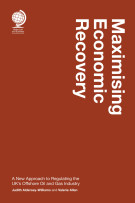
Browse books
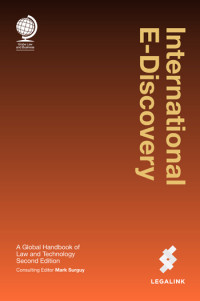
Price: £155.00
ISBN: 9781787424500
Add to basket (UK and Europe)Add to basket (USA, rest of world)
International E-Discovery:
A Global Handbook of Law and Technology, Second Edition
Price: £155.00
ISBN: 9781787424500
Add to basket (UK and Europe)Add to basket (USA, rest of world)
International E-Discovery provides an analysis from across the globe of the different approaches to and cutting-edge techniques in the use of digital evidence in legal and regulatory contexts. This second edition brings the reader fully up to date with what works and what has failed and where future investment is likely to be needed, as well as containing expanded geographic coverage with more professional tips on getting ahead with best practice on a country by country basis.
more...
Price: £95.00
ISBN: 9781787424869
Add to basket (UK and Europe)Add to basket (USA, rest of world)
Family Governance and Surplus Wealth:
Sustaining Family Fortunes
Price: £95.00
ISBN: 9781787424869
Add to basket (UK and Europe)Add to basket (USA, rest of world)
Family Governance and Surplus Wealth: Sustaining Family Fortunes demystifies the topic of family governance and shows advisers and families how governance can assist with the challenges of managing and transitioning surplus wealth. It covers the characteristics and challenges of surplus wealth, why wealthy families need family governance and how family governance can help families with the successful transition of surplus wealth between the generations, and will be important reading and reference for all practitioners advising ultra-wealthy individuals and business families.
more...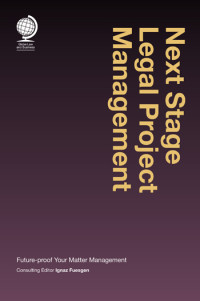
Price: £95.00
ISBN: 9781787424180
Add to basket (UK and Europe)Add to basket (USA, rest of world)
Next Stage Legal Project Management:
Future-proof Your Matter Management
Price: £95.00
ISBN: 9781787424180
Add to basket (UK and Europe)Add to basket (USA, rest of world)
Corporate legal teams and law firms have made significant investments in their legal project management programmes over the past few years. It is time to take stock and, more importantly, envision future interventions. Written by practitioners for practitioners, this title will benefit General Counsel, legal COOs, managing partners, practice leaders and other executives running legal services delivery teams who have initiated legal project management programmes and seek new ideas and inspiration for more value creation. Practical and illustrative examples, case studies and many shared experiences direct the reader towards the next level of proficiency in legal project management – future-proofing your matter management.
more...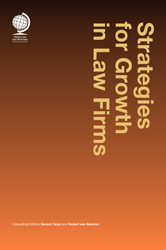
Price: £125.00
ISBN: 9781787423664
Add to basket (UK and Europe)Add to basket (USA, rest of world)
Strategies for Growth in Law Firms
Price: £125.00
ISBN: 9781787423664
Add to basket (UK and Europe)Add to basket (USA, rest of world)
Increasingly, international law firms are making it a strategic priority to expand their professional reach and enter new markets. Strategies for Growth in Law Firms provides in-depth insights, practical tools and case studies covering the methodologies, execution and implementation of growth strategies for law firms. In addition, it gives an overview of developments in the main international legal markets and of the different international growth strategies pursued by international law firms, the Big Four and alternative legal service providers.
more...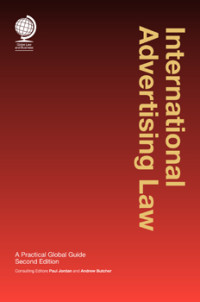
Price: £165.00
ISBN: 9781787423909
Add to basket (UK and Europe)Add to basket (USA, rest of world)
International Advertising Law:
A Practical Global Guide, Second Edition
Price: £165.00
ISBN: 9781787423909
Add to basket (UK and Europe)Add to basket (USA, rest of world)
Updated for 2021, International Advertising Law addresses the relevant law and regulations, as well as setting out practical considerations. This second edition covers key areas of advertising law such as local complaints procedures and enforcement, comparative advertising, influencer campaigns, sales promotions, ambush marketing, product placement, direct marketing and online behavioural advertising, and includes chapters from leading experts in 27 jurisdictions.
more...
Price: £159.00
ISBN: 9781783584048
Add to basket (UK and Europe)Add to basket (USA, rest of world)
Adjusting the Numbers:
The Future of Finance in Law Firms
Price: £159.00
ISBN: 9781783584048
Add to basket (UK and Europe)Add to basket (USA, rest of world)
Adjusting the Numbers: The Future of Finance in Law Firms looks back at a year like no other in our lifetimes, highlighting pricing, budgeting, strategic planning and people management principles, and identifying good compensation practices that can be applied during the pandemic, its gradual cessation, and beyond.
more...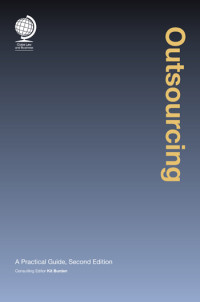
Price: £175.00
ISBN: 9781787424302
Add to basket (UK and Europe)Add to basket (USA, rest of world)
Outsourcing:
A Practical Guide, Second Edition
Price: £175.00
ISBN: 9781787424302
Add to basket (UK and Europe)Add to basket (USA, rest of world)
This book is the fully updated second edition of the key text on outsourcing written by the market-leading global technology and sourcing team at DLA Piper, one of the world's largest law firms. Writing from both a legal and commercial perspective, it considers the complete lifecycle of an outsourcing contract and the variety of legal and contractual issues that can arise in connection with such a project. It will provide you with an end-to-end guide to the outsourcing contracting process and the detailed terms to be considered and carefully negotiated.
more...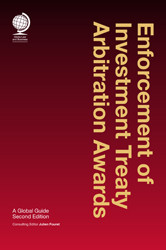
Price: £225.00
ISBN: 9781787423497
Add to basket (UK and Europe)Add to basket (USA, rest of world)
Enforcement of Investment Treaty Arbitration Awards:
A Global Guide, Second Edition
Price: £225.00
ISBN: 9781787423497
Add to basket (UK and Europe)Add to basket (USA, rest of world)
The growth in cross-border investments in an increasingly globalised economy means that there are more international disputes between foreign investors and states than ever before. Spearheaded by leading arbitration practitioner, Julien Fouret, this second edition brings together 70 experts to provide substantive analysis of recurring issues at the award enforcement stage plus practical perspectives on enforcing awards based on investment treaties.
more...
Price: £75.00
ISBN: 9781783584024
Add to basket (UK and Europe)Add to basket (USA, rest of world)
The Virtual Lawyer
Price: £75.00
ISBN: 9781783584024
Add to basket (UK and Europe)Add to basket (USA, rest of world)
The Virtual Lawyer examines the new virtual ways of approaching marketing and business development, explaining how you can continue to strengthen your existing relationships, boost your visibility in the markets you serve, and generate the new introductions and new opportunities you’ll need to grow your practice whilst working remotely.
more...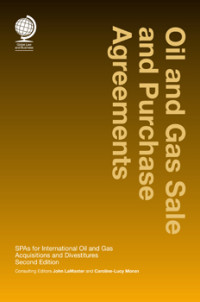
Price: £175.00
ISBN: 9781787423985
Add to basket (UK and Europe)Add to basket (USA, rest of world)
Oil and Gas Sale and Purchase Agreements:
SPAs for International Oil and Gas Acquisitions and Divestitures, Second Edition
Price: £175.00
ISBN: 9781787423985
Add to basket (UK and Europe)Add to basket (USA, rest of world)
This second edition, written by experienced and well-known practitioners from within the oil and gas industry, is intended to provide a practical review of the provisions typically included in oil and gas sale and purchase agreements. It includes updated and revised chapters from the first edition, as well as new chapters, including on disclosure letters; private equity transactions; warranty and indemnity insurance; and material adverse changes. It aims to benefit lawyers and commercial negotiators working in the industry who handle sale and purchase transactions.
more...




